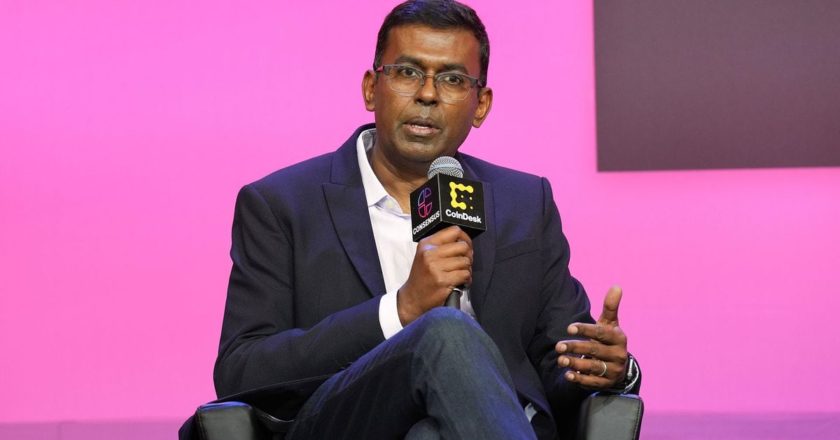On Jan. 10, 2019, the team behind a national cryptocurrency for the Republic of the Marshall Islands (RMI) — dubbed the Sovereign (SOV) — revealed that the coin is still being actively developed, despite previous disagreements among government officials, as well as reservations expressed by the International Monetary Fund (IMF) and the United States Treasury Department on the subject.
The idea behind the SOV project lies in the RMI government’s pursuance of “manifesting our [the RMI’s] national liberty,” as well as the creation of an alternative state currency to the U.S. dollar, which the small island nation has been using for decades.
Behind the scenes of the decision to issue a national crypto
The Republic of the Marshall Islands is an island country located near the equator in the Pacific Ocean and consists of 29 atolls and five individual islands, amounting to about 1,225 islands. For a period of 40 years, the country had been administered by the U.S. as part of the Trust Territory of the Pacific islands, attaining independence in 1986 under the Compact of Free Association.
Currently, the Marshall Islands uses the U.S. dollar as its official currency and is “highly dependent on receiving and spending U.S. grants,” totalling around $70 million each year in assistance, in accordance with the compact. Once issued, the SOV will circulate alongside the dollar, thus the Marshall Islands will have two coexisting legal tenders “for all debts, public charges, taxes and dues.”
The Sovereign was first introduced in February 2018, when the parliament of the Marshall Islands passed a law declaring its new national digital currency set to be released through an initial coin offering (ICO), with an initial total amount of 24 million units in order to avoid inflation. Some cash raised from the ICO will purportedly go toward health care for the country’s roughly 53,000 citizens who fell victim to the consequences of nuclear testing by the U.S. in the past.
The president of the RMI. Hilda C. Heine, said then that “this is a historic moment for our people, finally issuing and using our own currency, alongside the USD. It is another step of manifesting our national liberty.”
To implement the SOV initiative, the RMI government partnered with Israeli fintech startup Neema. Neema CEO Barak Ben-Ezer told the press that “this cryptocurrency, the Sovereign, is completely decentralized and the government cannot control the money supply. After the [crowd sale], they don’t have any control over the currency.”
Peter Dittus, chief Economist and co-founder of SOV Global and former secretary general of the Bank for International Settlements, told Cointelegraph that the decision to develop a national digital currency and not a fiat one is backed by several reasons. According to Dittus, developing countries, such as the RMI, struggle with the high costs of remittances, and having a crypto legal tender creates a situation where the solution to costly remittance is “baked into” the monetary system itself. Additionally, a central bank-managed fiat currency is costly to implement and to run, wherein “for a small country the costs clearly outweigh the benefits.”
SOV’s further development is challenged by the IMF and the U.S. Treasury Department
However, later in September, the International Monetary Fund (IMF) raised doubts about the issuance of SOV, claiming that “the potential benefits from revenue gains appear considerably smaller than the potential costs arising from economic, reputational, AML [Anti-Money Laundering]/CFT [Countering the Financing of Terrorism], and governance risks.”
The IMF further warned the Marshallese authorities against adopting of cryptocurrency, stating that it will pose risks to the country’s financial integrity, as well as relationships with foreign banks. The regulator urged the RMI to reconsider issuing a cryptocurrency until the government is able to provide and implement “strong policy frameworks.”
Dittus revealed that SOV will differ from most digital currencies, as it will have measures built-in to discourage misuse, outlining the need to closely cooperate with regulators, financial institutions and exchanges “to ensure that Know-Your-Customer [KYC] rules are well implemented, and that AML features cannot be circumvented.” This will purportedly allow the RMI to develop new capacities in governance and facilitate a wider adoption of the technology within the country.
Speaking about possible instability in the country’s financial system caused by cryptocurrency’s volatile nature, Dittus said that it is planned to establish a Bank of SOV in the RMI, which will help provide SOV-related services to the other banks, hedging the exposure and facilitating transactions. Dittus, however, added:
“On a fundamental level, there is no guarantee of banks or the government to provide conversion between SOV and the USD at a fixed rate, thereby limiting financial instability.”
Heine administration’s plan to issue a state cryptocurrency sparks political instability
Despite perceived advantages of the concept behind a national digital currency, RMI President Heine faced a vote of no confidence in November in connection to her administration’s plans to implement SOV. The vote was introduced by a group of eight senators, and former President Casten Nemra stated that the plans of establishing a digital currency as legal tender had a negative impact on the reputation of the country, also endorsing the arguments put forward by the IMF and the U.S. Treasury Department.
Six days later, it was reported that Heine survived the no confidence vote, with the Marshallese parliament reportedly splitting 16-16, just one vote short of the number needed to prompt Heine to resign the office of president. RMI Finance Minister Brenson Wase declared the government would move forward with SOV and is waiting to fulfill requirements from the IMF, the U.S. and Europe.
Commenting on the situation, Dittus stressed:
“The IMF has endorsed CDBCs, and its managing director, Christine Lagarde, has highlighted the potential benefits, in particular for smaller economies. But so far, there have not been implementations of sovereign cryptocurrencies. The Marshall Islands has been the first state to declare one as legal tender. The challenge is now to make it a reality. And that is highly motivating.”
The SOV team further revealed that it had made “significant progress in finding partners, investors and developers” to realize the project and aims to launch SOV in 2019. The project also announced a new partnership with “smart banknotes” firm Tangem, a startup operating from Switzerland and Singapore.
While the initiative has been receiving criticism from major financial organizations and government officials, the SOV team seems to be confident with the viability of the idea behind national digital currency and its impact on the country’s further development. Dittus also unveiled the possibility of introducing a stablecoin variant at a later stage, and added:
“The emission of the SOV will be controlled by the rules baked into the blockchain, with an initial total amount of 24 million units. Each year, the total supply will increase by four percent, implementing a proposal made by the late Prof. Milton Friedman. In addition, unlike other fiat currencies, where new money is issued to private banks, new SOV units will be distributed pro-rata, or per capita, back to the SOV holders. As the SOV supply will increase broadly in line with world GDP [Gross Domestic Product], it should tend to lead to relatively stable exchange rate against goods over time.”




